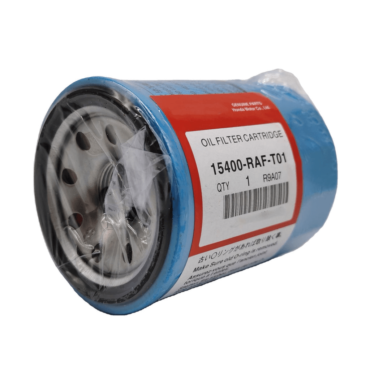In the food industry, maintaining clean, high-quality oil is crucial for delivering the best flavors and textures while keeping customers safe. Oil that is used repeatedly can degrade in quality, leading to unwanted flavors and compromising food safety. This is where food oil filters come into play. From restaurants to large-scale food processing facilities, a reliable food oil filter can significantly improve food quality, reduce waste, and extend the lifespan of cooking oil. This guide explores the role of food oil filters, their benefits, types, and how they support food safety.
Why Food Oil Filtration Matters
Every time oil is heated and food is fried, particles from the food, as well as oxidized compounds, accumulate in the oil. These impurities can impact the color, flavor, and nutritional value of the oil. By using a food oil filter, restaurants and food processors can ensure the oil remains fresh and safe for longer. This not only enhances the taste and quality of the food but also minimizes health risks associated with using degraded oil. Moreover, filtering oil can reduce the frequency of oil changes, resulting in cost savings and reduced waste.
Key Benefits of Food Oil Filters
A high-quality food oil filter provides several advantages that go beyond simply keeping oil clean. Here are some of the top benefits:
- Enhanced Food Quality
Clean oil is essential for achieving the desired taste, texture, and color in fried foods. Filtering out impurities prevents cross-contamination of flavors, allowing foods to taste as they should. This is especially crucial for establishments known for their fried items, as customers expect consistent quality with each bite. - Extended Oil Life
Food oil filters remove food particles and contaminants that degrade oil. By filtering these particles regularly, businesses can significantly extend the life of their oil. This reduces the cost of purchasing new oil frequently and is a more sustainable practice, lowering environmental impact. - Improved Health and Safety
Degraded oil produces harmful compounds that can negatively affect health. Regular filtration helps maintain oil quality, minimizing the risks associated with consuming food cooked in poor-quality oil. Restaurants and food processors prioritize customer safety, and using food oil filters is one way to uphold high health standards.
For a deeper dive into the benefits of oil filters and other filtration products, FilterPoint provides detailed insights and top-quality filtration solutions.
Types of Food Oil Filters and Their Applications
Selecting the right type of food oil filter depends on the specific needs of a business, from the scale of operations to the type of oil used. Here’s a look at some common types of food oil filters:
- Gravity-Fed Filters
Gravity-fed filters are simple and cost-effective, using the force of gravity to pass oil through a filter medium that captures impurities. These filters are suitable for smaller businesses or establishments with lower oil consumption, as they don’t require complex machinery. Gravity-fed filters are an excellent choice for those who want an economical way to improve oil quality. - Pressure Filters
Pressure filters use high pressure to push oil through a fine filter medium. This system is efficient and effective, making it ideal for establishments with high oil consumption, like fast-food chains and large kitchens. Pressure filters can handle larger volumes of oil and remove even the finest particles, preserving oil quality over extended use. - Carbon-Activated Filters
Carbon-activated filters are designed to remove not just particles but also odor and flavor compounds from the oil. These filters are especially useful in environments where maintaining neutral oil flavor is important. The activated carbon absorbs unwanted flavors and odors, resulting in a cleaner-tasting end product. - Portable Oil Filtration Units
Portable oil filtration units are mobile systems that can be easily moved between fryers, making them versatile for multi-fryer setups. These units combine filtration and portability, making it convenient for kitchens to maintain clean oil in various locations. Portable units are a practical choice for high-volume kitchens that require flexibility in their filtration process.
More information on these options and their applications can be found on FilterPoint’s website, where industry-leading solutions are offered for diverse filtration needs.
The Filtration Process: How Food Oil Filters Work
The filtration process is straightforward yet highly effective in removing contaminants from oil. Here’s an overview of how it works:
- Oil Collection
Used oil is transferred into the filtration system, where it begins the cleaning process. - Particle Separation
The filter medium, which may consist of fine mesh or carbon-activated materials, captures food particles, crumbs, and impurities as the oil passes through. These filters vary in pore size, allowing for different levels of filtration based on the desired oil purity. - Clean Oil Return
Once filtered, the clean oil is returned to the fryer, ready to be used again. This recycling process keeps oil fresh and reduces the frequency of complete oil replacements, resulting in cost savings and less waste.
With FilterPoint, you can explore advanced filtration systems designed to streamline the entire process, ensuring that food businesses can maintain the highest quality and safety standards.
Maintenance Tips for Food Oil Filters
Proper maintenance is essential for food oil filters to work effectively. Regular cleaning and upkeep of filtration systems help ensure optimal performance and a longer filter life. Here are some helpful maintenance tips:
- Regular Cleaning of Filter Medium
Depending on usage, clean or replace the filter medium as recommended by the manufacturer. Allowing residue to build up can compromise the filter’s effectiveness and reduce oil quality. - Inspect for Wear and Tear
Routine inspection of the filtration unit ensures that all components are in good working condition. Look for signs of wear, particularly in pressure filters, where seals and pumps need to be in top shape for efficient operation. - Replace Filters as Needed
Over time, filters lose efficiency and need replacement. Follow the manufacturer’s guidelines to determine when to replace filters to maintain the quality of your oil and food.
Choosing the Right Food Oil Filter for Your Business
Selecting the best food oil filter depends on your business’s specific requirements, such as volume, type of food cooked, and budget. Smaller restaurants may benefit from simpler, cost-effective solutions like gravity-fed filters, while larger operations with high output will need more robust systems such as pressure or carbon-activated filters. Portable filtration units offer flexibility, making them suitable for busy kitchens that require versatile filtration solutions.
Conclusion
Food oil filters play an indispensable role in maintaining the quality, safety, and taste of fried foods, which is why they are essential for any food establishment. By investing in the right filtration system, businesses can save on costs, reduce waste, and uphold high food quality standards. Reliable filtration systems not only protect customer health but also contribute to sustainable practices by extending the life of cooking oil.




